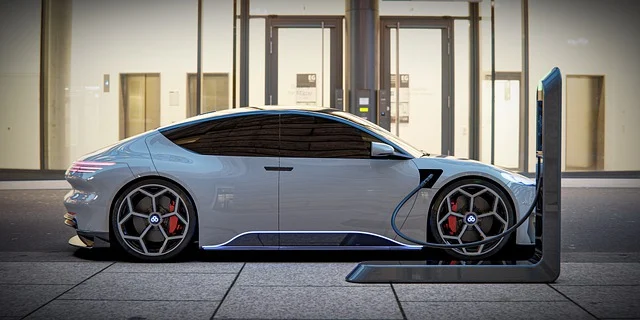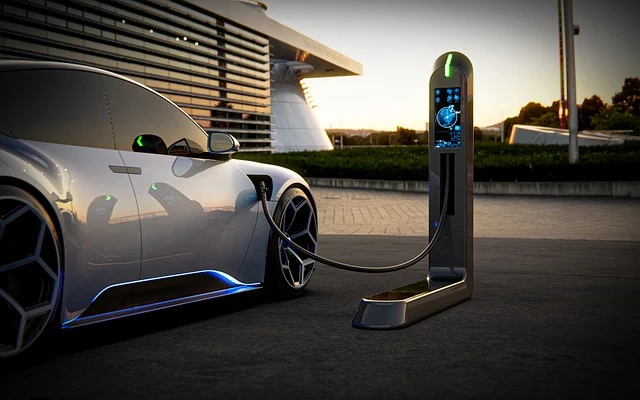As the world shifts towards more sustainable modes of transportation, electric vehicles (EVs) have taken center stage. With their eco-friendly features and growing popularity, many car manufacturers are developing innovative models to meet the demands of consumers. One such model is the YoYo Electric Car. As potential owners consider this compact electric car, a common question arises: Does a YoYo Electric Car need a special charging station? In this blog post, we’ll explore this question and delve into the broader context of electric vehicle charging solutions, infrastructure, and the overall benefits of adopting electric vehicles.
The Rise of Electric Vehicles and Their Green Impact
The surge in electric vehicle adoption can be attributed to several factors. From governmental incentives to consumer awareness of climate change, more people are recognizing the advantages of driving electric. According to the International Energy Agency, global electric car sales hit 10 million units in 2022, marking a remarkable increase from just over 200,000 in 2012. This exponential growth highlights the shift toward sustainable transportation solutions.
Electric vehicles provide numerous environmental benefits:
- Reduced Emissions: EVs produce zero tailpipe emissions, which significantly lowers air pollution.
- Lower Greenhouse Gases: While some emissions occur during electricity production, EVs generally contribute to fewer greenhouse gases compared to gasoline vehicles.
- Energy Efficiency: Electric cars convert over 77% of electrical energy from the grid to power at the wheels, whereas traditional gasoline vehicles convert only about 12%–30% of the energy stored in gasoline.
Understanding the YoYo Electric Car’s Unique Features
Before discussing charging needs, it’s essential to understand the unique features of the YoYo Electric Car.
Key Specifications of the YoYo Electric Car
- Battery Capacity: The YoYo features an efficient YoYo car battery with a capacity of 50 kWh.
- Range on a Full Charge: This compact electric car can travel approximately 200 miles on a single charge, making it suitable for both city commuting and long-distance electric driving.
- Charging Speed: The YoYo supports fast charging technology, allowing users to charge their vehicles to 80% in just 30 minutes at compatible stations.
Innovative Technologies in the YoYo Electric Car
The YoYo Electric Car incorporates several advanced technologies, such as:
- Smart Charging Systems: These systems optimize charging time and energy usage, allowing owners to charge during off-peak hours for cost savings.
- Battery Management Systems: This technology ensures battery longevity and performance by monitoring the health of the efficient battery systems and providing alerts for maintenance.
Comparison with Other Popular Electric Cars
When comparing the YoYo Electric Car with other eco-friendly cars, it’s essential to consider aspects like charging time optimization, overall performance, and range. For example, Tesla models typically have longer ranges but come at a higher price point. In contrast, the YoYo offers an affordable entry into the electric vehicle market, making it an attractive option for those looking for electric vehicle convenience.
Charging Basics for Electric Vehicles

Understanding how to charge an electric vehicle is crucial for prospective owners. There are several types of EV charging stations:
- Level 1 Charging: This type uses a standard 120-volt outlet and is the slowest option, typically adding 3 to 5 miles of range per hour. It’s more suitable for home charging solutions if you have a garage and can charge overnight.
- Level 2 Charging: Utilizing a 240-volt outlet, this method provides a much faster charge, adding 10 to 60 miles of range per hour. Many homeowners opt for Level 2 charging stations to optimize their charging setup.
- DC Fast Charging: This option delivers high-power charging at public charging stations, allowing EVs to gain significant range quickly—often up to 80% in just 30 minutes.
General Charging Requirements for Electric Vehicles
Most electric vehicles, including the YoYo, are compatible with Level 2 charging stations. However, not all models support DC fast charging. When considering your charging options, here are some questions to keep in mind:
- What is the charging speed of the station?
- Is the charging station compatible with my vehicle?
- Where can I find nearby charging stations?
Does the YoYo Electric Car Need a Special Charging Station?
The primary question remains: Does the YoYo Electric Car need a special charging station? The short answer is no; however, there are important factors to consider.
Specific Charging Needs of the YoYo Electric Car
The YoYo Electric Car is designed to work with standard Level 2 charging stations, making it compatible with most public and home charging options. It does not require a proprietary charging station, which makes it easier for owners to find charging solutions.
Compatibility with Existing Charging Stations
Most charging stations, including EV charging networks, offer compatibility with various electric vehicles. The YoYo’s charging port supports common connectors, ensuring users can easily find charging stations in their area.
Overview of Unique Charging Technology
While the YoYo doesn’t need a special station, it does utilize smart charging systems that may be more effectively used with certain charging networks. Owners should consider signing up for EV charging apps that provide charging station alerts and availability updates.
Pros and Cons of Using a Special Charging Station
| Pros | Cons |
| Enhanced charging speed with specific stations | Limited availability compared to standard stations |
| Potential integration with smart home systems | Higher installation costs for home stations |
| May offer more advanced charging features | Compatibility issues with non-branded stations |
Current State of EV Charging Infrastructure Globally
The availability of public charging infrastructure varies significantly worldwide. In many urban areas, charging stations are becoming more accessible, while suburban and rural areas may lag behind.
Availability of Charging Stations
- Urban Charging Solutions: Major cities have expanded their networks of EV charging stations, often offering Level 2 charging stations and DC fast chargers.
- Suburban EV Charging: In suburban areas, the growth of charging stations has been slower, but many communities are working on increasing accessibility through local initiatives.
- Rural Charging Options: Rural areas still face challenges regarding charging availability. However, long-term plans aim to improve this infrastructure.
Trends in Charging Station Installations
According to the U.S. Department of Energy, there were over 130,000 public charging outlets in the U.S. by 2023, with a projected increase of 60% in the next five years. This trend indicates that the electric vehicle infrastructure is improving and becoming more widespread.
Future Developments in EV Charging Infrastructure
The future of EV charging looks promising, with advancements in technology paving the way for more efficient charging options. Here are some anticipated trends:
- Wireless Charging: Innovations are being explored in wireless charging technology that could eliminate the need for physical connectors.
- Renewable Energy Integration: More charging stations are incorporating solar panels or wind energy, promoting the use of renewable energy vehicles.
- Community Charging Solutions: Local governments are collaborating with businesses to create charging stations in public spaces, further enhancing access for all EV owners.
Tips for Optimizing Your YoYo Electric Car Charging Experience
To maximize your YoYo Electric Car’s efficiency, consider these practical tips for optimizing your charging experience:
Best Practices for Home Charging
- Install a Level 2 Charger: If you have the option, invest in a Level 2 home charging station. It significantly reduces charging time compared to Level 1.
- Charge Overnight: Charging at night can take advantage of lower electricity rates and allows you to start your day with a full battery.
- Monitor Charging: Use an EV charging app to track your charging sessions and get alerts on charging status and maintenance needs.
Utilizing Public Charging Networks Effectively
- Plan Your Route: Use EV charging apps to locate charging stations along your route, especially for family road trips or long-distance driving.
- Charge During Off-Peak Hours: If possible, charge during off-peak hours when electricity rates are lower. This not only saves money but can help reduce grid congestion.
- Keep Your Charging Cable Handy: Always carry your charging cable, especially if you plan to use public charging stations that may not provide them.
Managing Charging Times for Maximum Efficiency
- Set Charge Limits: Many electric cars allow you to set a limit for how full the battery should charge. Keeping the charge between 20% and 80% can help extend battery life.
- Utilize Smart Charging Features: If your car supports it, use smart charging systems to optimize charging times based on energy costs.
Real-World Experiences with YoYo Electric Car Charging
To provide a more comprehensive view, let’s look at some real-world experiences related to charging at home and public infrastructure.
Case Study: Suburban Home Charging Experience
In a suburban setting, a YoYo owner installed a Level 2 charging station at home. They report the following benefits:
- Convenience: Charging overnight means they never worry about running out of battery.
- Cost Savings: By charging during off-peak hours, they save on energy costs.
- Increased Range: With a fully charged battery every morning, they enjoy the flexibility of driving without range anxiety.
Case Study: Family Road Trips and Public Charging Encounters
A family using their YoYo for long-distance travel found the following:
- Availability of Charging Stations: They planned their route using EV charging apps, allowing them to identify charging stations along the way.
- Charging Time Management: They utilized DC fast chargers during rest stops, minimizing downtime and enhancing their road trip experience.
- Electric Car Cost Savings: By using charging stations instead of traditional fuel, they significantly reduced their travel expenses.
Conclusion
The future of green transportation is bright, and electric vehicles like the YoYo Electric Car are at the forefront of this movement. While it doesn’t require a special charging station, understanding the various charging options and infrastructure available is crucial for maximizing your driving experience.
By embracing electric vehicles, you contribute to a sustainable future and enjoy the myriad benefits of electric car ownership. With smart charging systems, comprehensive charging infrastructure, and advancements in EV charging technology, the landscape for electric cars continues to evolve.
As you consider making the switch to electric, remember that every journey towards eco-conscious driving begins with a single charge.
Also Read More Article : Do RC Car Motor Fans Help
